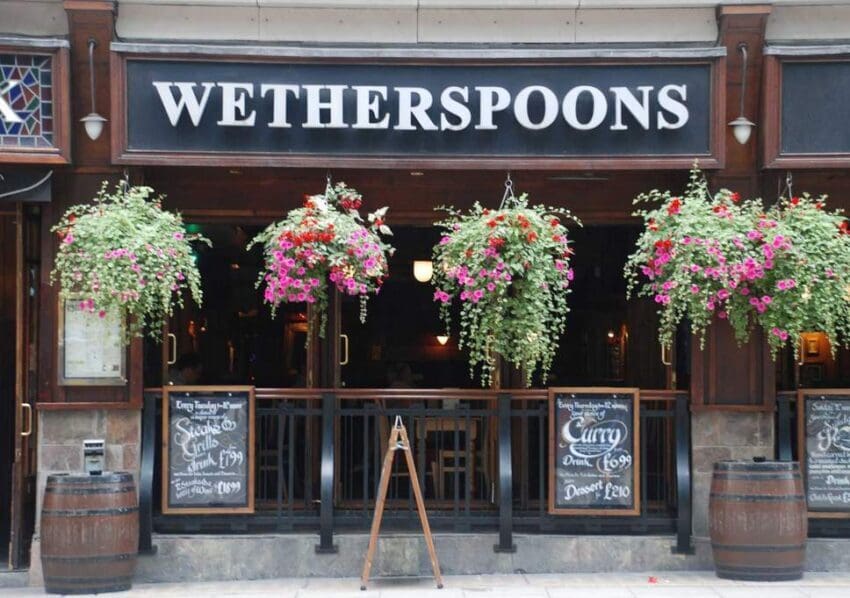The pub chain JD Wetherspoon has warned of bigger-than-expected annual losses amid rising staff pay and a slow recovery in bar trade as older drinkers continue to stay at home and sales of pints slump.
The group said it was anticipating losses of about £30m for the year to the end of July after investing to attract and retain workers, and ramping up spending on the wider business, including on repairs and marketing.
Underlying sales rose only 0.4% in the 11 weeks to 10 July as sales of draught ales, ciders and lagers – traditionally the pub chain’s biggest-selling lines – dropped 8%, offsetting a boom in sales of cocktails and hotel stays.
Analysts said the lack of demand for pints reflected the greater impact of inflation on older drinkers as well as their nervousness about returning to social activities after the pandemic lockdowns.
Wetherspoon’s, which has more than 800 pubs across the UK and Ireland, had said in May that it expected to break even over the full year, having welcomed a return to profit in March.
The profit alert sent shares in the group falling sharply, down more than 10% in morning trading on Wednesday.
The chair of Wetherspoon’s, Tim Martin, blamed the decline on rising inflation and the “unintended consequences” of coronavirus lockdowns, including many people leaving the workforce via early retirement.
“Many people now work from home, rather than from offices, which has had a significant impact on transport and hospitality businesses,” Martin said.
“The ‘fear factor’, used by governments to encourage compliance with lockdowns and restrictions, has also had lingering after-effects, with many people remaining cautious about leaving their homes.”
Wetherspoon’s said the recovery for many pub firms had been “slower and more laborious” than expected, while the sector was also grappling with soaring costs and a pull-back in consumer spending because of rising inflation.
Matt Britzman, an equity analyst at Hargreaves Lansdown, said: “It looks like the older demographic’s still cautious to get out and about and that comes through in the numbers.
“Lagers and ales were replaced by spirits and cocktails as sales in lively city locations, with music on the weekends, performed much better than quieter, suburban, pubs.”
He added: “The difficulty now, for the entire pub sector, is that drinking and eating at home looks to be sticking around longer than first thought. That trend’s likely to continue, as the cost of living crisis looks poised to accelerate the tightening of purse strings.”
Wetherspoon’s said staff costs were far higher than before the pandemic, with firms across the sector having to increase wages to overcome recruitment difficulties. It added that it was now “with minor exceptions, fully staffed”.
Repair costs have also soared, with the group saying it will have spent about £99m on this in the current year, compared with £76.9m in 2018-19, because of “catchup” work since Covid restrictions lifted.
The company also blamed tax rules, which it said made it cheaper to buy alcohol in supermarkets than pubs.


